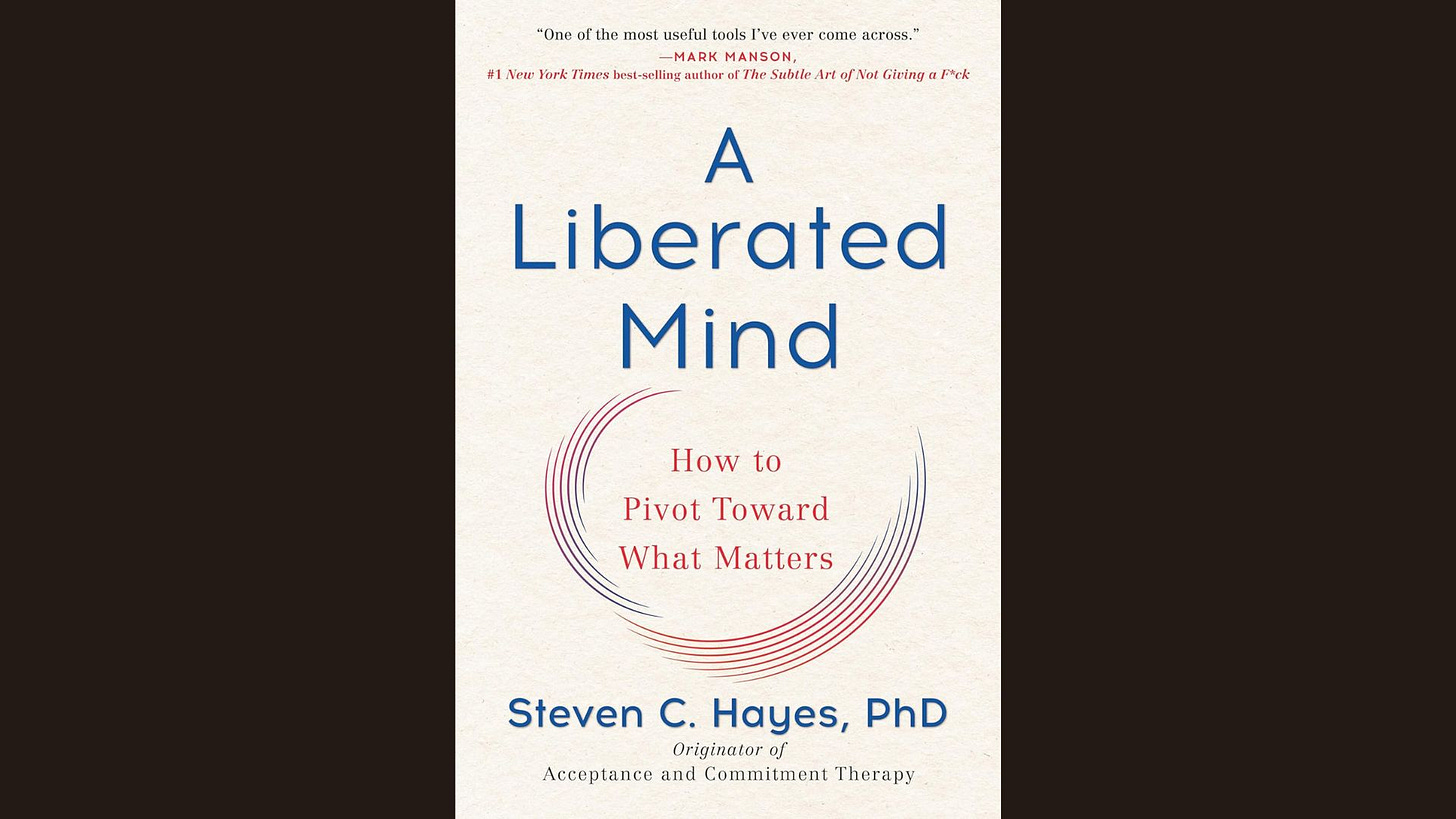Book Byte #347 "A Liberated Mind" by Steven C. Hayes
How to Pivot Toward What Matters
📣 Curious Quotes from the Author
“Psychological flexibility is the ability to feel and think with openness, to attend voluntarily to your experience of the present moment, and to move your life in directions that are important to you, building habits that allow you to live life in accordance with your values and aspirations. It’s about learning not to turn away from what is painful, instead turning toward your suffering in order to live a life full of meaning and purpose.”
“Pain and purpose are two sides of the same thing. A person struggling with depression is very likely a person yearning to feel fully. A socially anxious person is very likely a person yearning to connect with others. You hurt where you care, and you care where you hurt.”
“You can say it this way: if you learn to be less reactive to stress through the cultivation of flexibility pivots, the body starts turning off those reaction systems, including genetic expression switches that may have been originally thrown not by you but by your parents and grandparents. How cool is that?”
“The central shift is from a focus on what you think and feel to how do you relate to what you think and feel. Specifically, the new emphasis is on learning to step back from what you are thinking, notice it, and open up to what you are experiencing. These steps keep us from doing the damage to ourselves that efforts to avoid or control our thoughts or feelings inflict, allowing us to focus our energies on taking the positive actions that can alleviate our suffering.”
“The truth about mental health is that the causes of all of the mental conditions you hear about are unknown, and the idea that “hidden diseases” lurk behind human suffering is an out-and-out failure.”
“We began crafting ways to apply defusion and self skills to coping with the fear and pain of acceptance. Learning to defuse from the voice of the Dictator helps us keep a healthy distance from the negative messages that pop uninvited into our minds, like “Who are you kidding, you can’t deal with this!” It also helps diminish the power of the unhelpful relations that have been embedded in our thought networks, which are often activated by the pain involved in acceptance. For example, the relation between smoking a cigarette and feeling better will be triggered by the discomfort of craving a smoke. Reconnecting with our authentic self helps us practice self-compassion as we open up to unpleasant aspects of our lives, not berating ourselves for making mistakes or for feeling fear about dealing with the pain. We see beyond the image of a broken, weak, or afflicted self to the powerful true self that can choose to feel pain.”
“Most of us think of evolution only in terms of genetics, but that is a mistake. Culture, thought, behavior, and the expression of genes (the genes you have can be turned on or off) also evolve. In addition, we humans can influence our evolution by the environments we construct and the choices we make; our evolution is not just a matter of chance. We have been given the great gift of being able to adapt our thinking and behavior intentionally, and to change our circumstances deliberately, to better suit healthy, purposeful living. The six flexibility skills form such a powerful set because each allows us to meet one of the six essential criteria for evolution to occur. They provide us with the tools to intentionally evolve our lives.”
“Psychological flexibility is the ability to feel and think with openness, to attend voluntarily to your experience of the present moment, and to move your life in directions that are important to you, building habits that allow you to live life in accordance with your values and aspirations.”
“The single hardest burden for a human being to carry is a lack of nurturance in childhood. Physical or sexual abuse, neglect, constant criticism: in the face of such treatment, our bodies and minds brace for a tough life ahead, even down to the level of how our genes are expressed. Genetics research has revealed that our life experiences influence which of our genes will become more or less active. For example, a specific group of genes is involved in responding to stress. A lack of nurturance intensifies their activity, making us less able to handle stress and decreasing our resistance to disease. We can also experience emotional instability or emotional blunting that can be lifelong.”
“Popular books promise that we can and should learn how to feel good, manage our anxiety, or get rid of our depression—but not so much information about how to learn from our own experiences. Our medications are anti-depressants, or anti-anxiety, or anti-psychotics, as if the only sensible goal is to subtract them. Our disorders are called “mood disorders” or “thought disorders” or “anxiety disorders”—once again feeding a cultural view that is often outright hostile to anything painful. We’ve got to put aside this unhelpful messaging to create some space to try truly new things.”
📚 Cognition of the Book’s Big Idea
Instead of resisting your ideas or feelings, you might learn to observe them as they move through your awareness like weather. When you stop fighting against pain, you may use it as a guide toward your ideals. Pain is not your enemy; rather, it is a messenger about what important to you. Your values serve as an internal compass, guiding you toward the attributes you wish to contribute to every situation rather than toward accomplishments. Instead of waiting for your ideas and feelings to change, true transformation occurs when you take tiny, dedicated steps in important areas. The journey to psychological flexibility is about accepting life as it comes, one step at a time, rather than striving for perfection.
Until Tomorrow,
Jason (Founder Club255)

